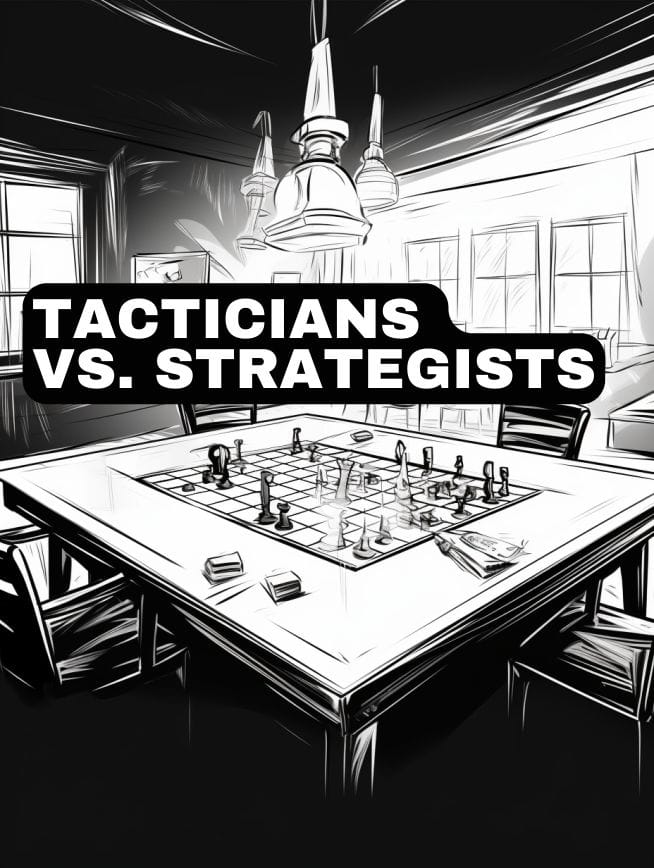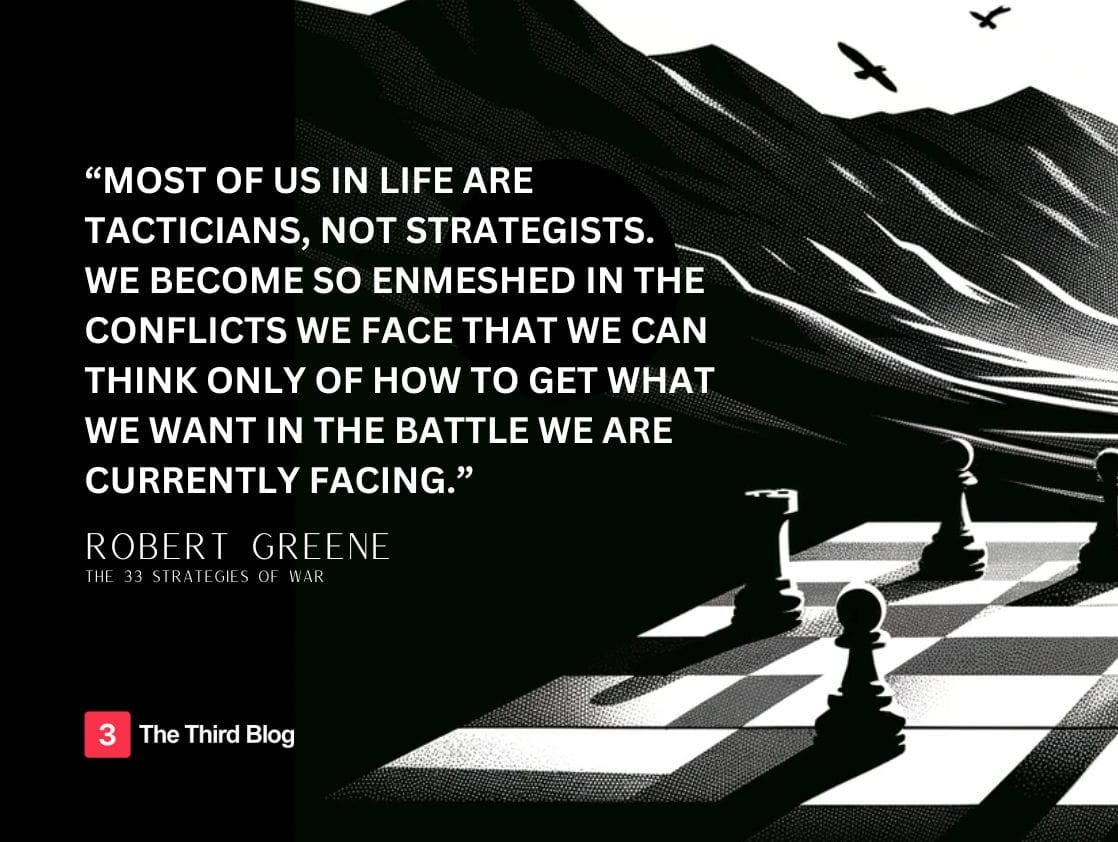Tacticians vs. Strategists
In life, many are tacticians, reacting to present challenges. However, the power of strategic thinking lies in foreseeing future obstacles and aligning with long-term visions. By understanding the broader context, we can shift from immediate responses to purposeful planning.

Day to day, we often find ourselves caught in the crosshairs of daily battles. These skirmishes, whether they be personal, professional, or emotional, consume our thoughts and dictate our actions.
Robert Greene, in his book "The 33 Strategies of War," aptly observes:
“Most of us in life are tacticians, not strategists. We become so enmeshed in the conflicts we face that we can think only of how to get what we want in the battle we are currently facing.”

As you can see from the rest of my content, I'm a big fan of the work from Robert Greene. Normally we talk about 'Power', but this time it's War.
The Tactician's Dilemma
Tacticians are reactive. They respond to immediate challenges, often with great skill and precision. Think of them as the firefighters of life, always ready to douse the flames of the latest crisis. While this approach has its merits, especially in high-pressure situations, it can also be limiting. By focusing solely on the present, tacticians may miss the broader picture, sacrificing long-term gains for short-term victories.
In our digital age, where instant gratification is the norm, it's easy to fall into the tactician's trap. We're constantly bombarded with notifications, messages, and updates, pulling our attention in a million different directions. This "digital monkey" we grapple with daily can make it challenging to see beyond the immediate.
For all my life I've been an accomplished tactician, however this made me open my eyes to strategically planning for the future. For example, I've practised martial arts all my life - however as I age I'll need to pick one where I can remain competitive and keep learning. MMA is not a good option, but perhaps BJJ is.
No doubt you've heard the quote:
“If you fail to plan, you plan to fail” - Benjamin Franklin.
This can be applied everywhere.
The Strategist's Vision
On the other hand, strategists are forward-thinkers. They see the bigger picture, planning several moves ahead. Instead of merely reacting to challenges, they anticipate them, devising plans to navigate obstacles and seize opportunities. Strategists understand that today's decisions have ramifications for the future. They recognize the interconnectedness of life's battles and strive to align their actions with their long-term goals.
Consider the concept of "Chesterton's Fence" which I've written about previously. Before making changes, it's essential to understand the purpose of existing systems. This mindset is emblematic of a strategist, who seeks to comprehend the broader context before taking action.
Bridging the Gap
So, how can we transition from tacticians to strategists in our lives? The key lies in self-awareness and reflection. By regularly taking a step back to assess our actions and their implications, we can start to see the broader picture. It's about questioning our motivations, understanding our goals, and aligning our actions accordingly.
Moreover, embracing practices like Stoicism, could provide valuable tools for this transition. By focusing on what's within our control and accepting what's not, we can cultivate a strategic mindset, ensuring that our actions today serve our greater purpose tomorrow.
Life will always present us with battles. The choice between being a tactician or a strategist is ours to make. While there's a time and place for both approaches, cultivating a strategic mindset can provide clarity, purpose, and direction in our increasingly chaotic world.
Here's a nice video from Patrick Bet David that supplements this message:
T3B

